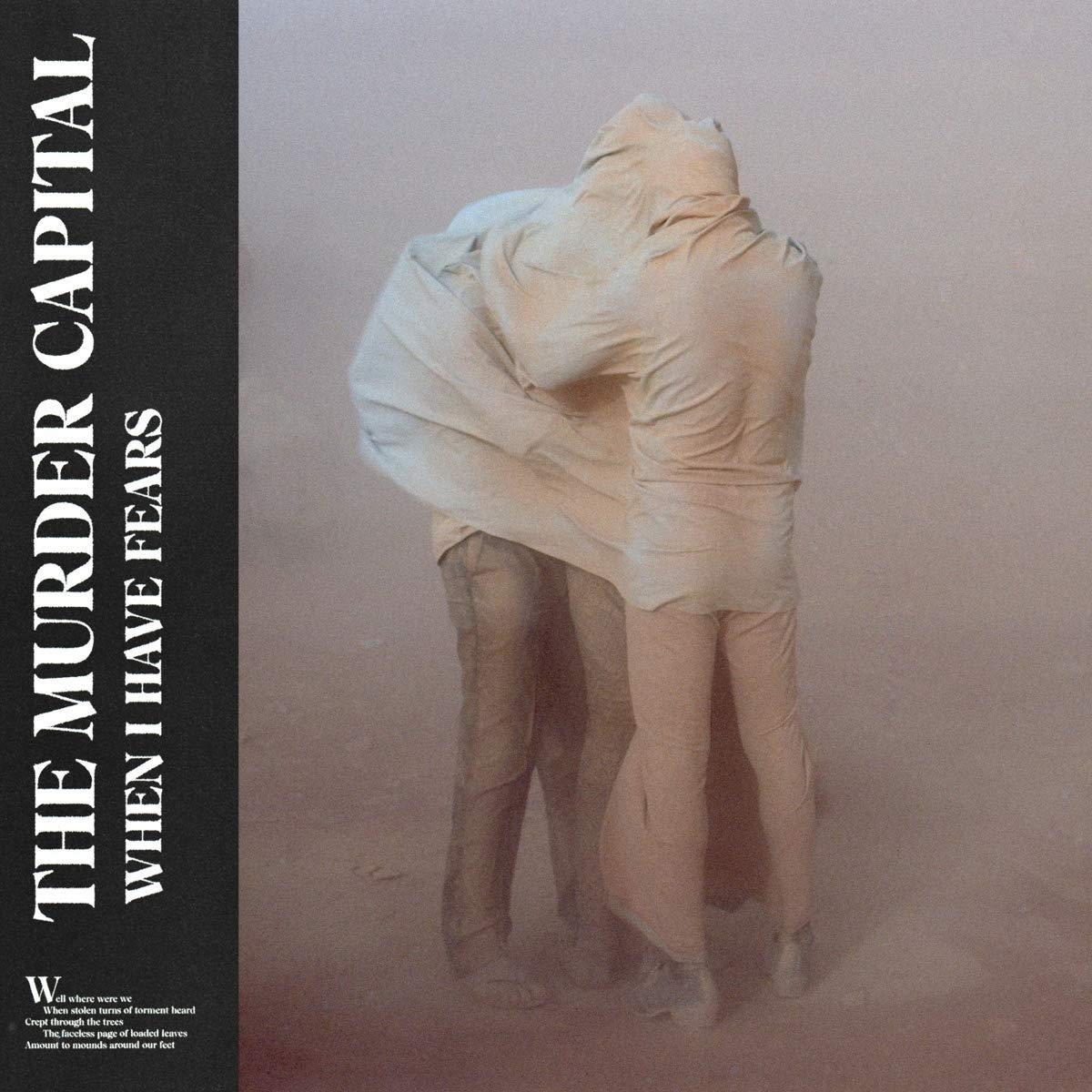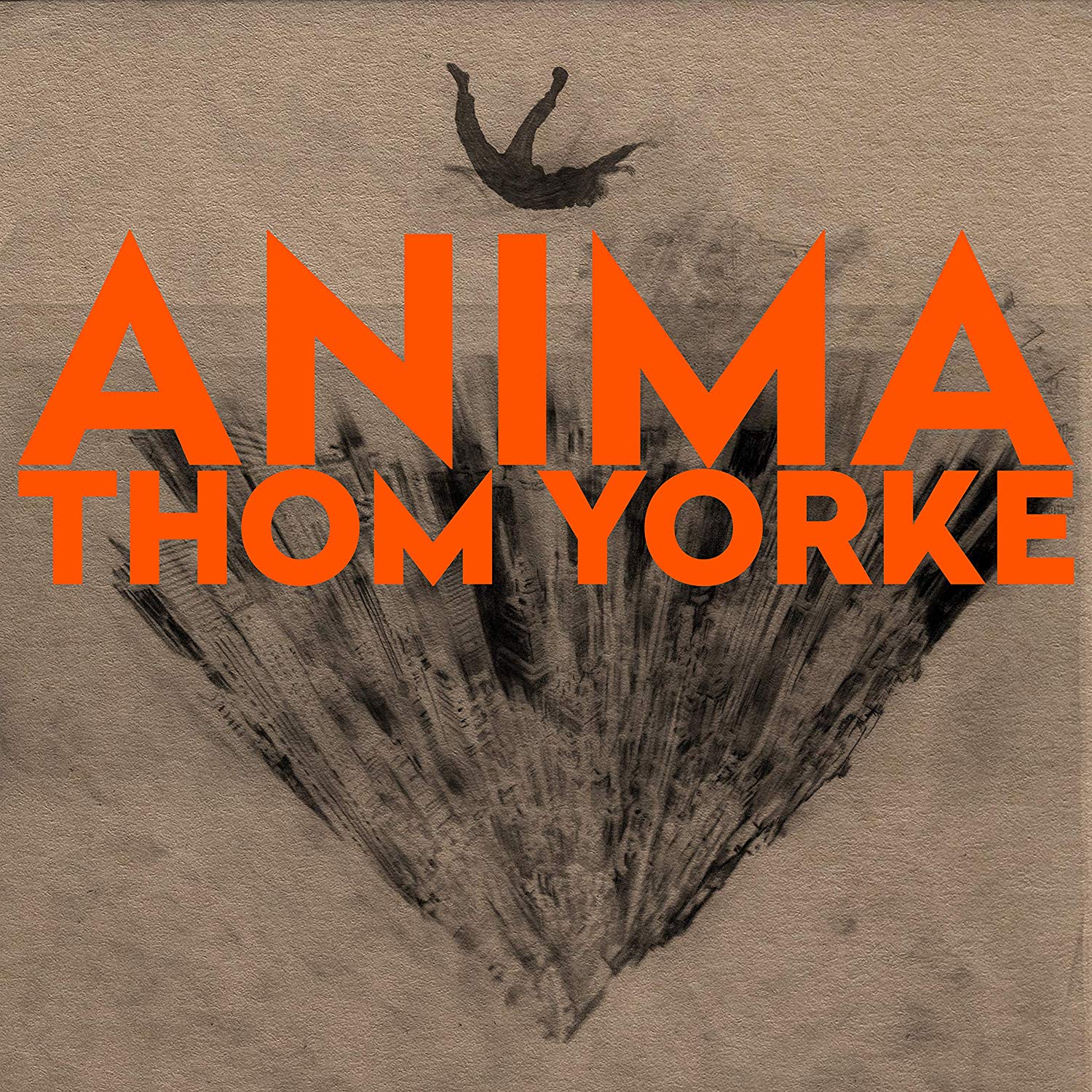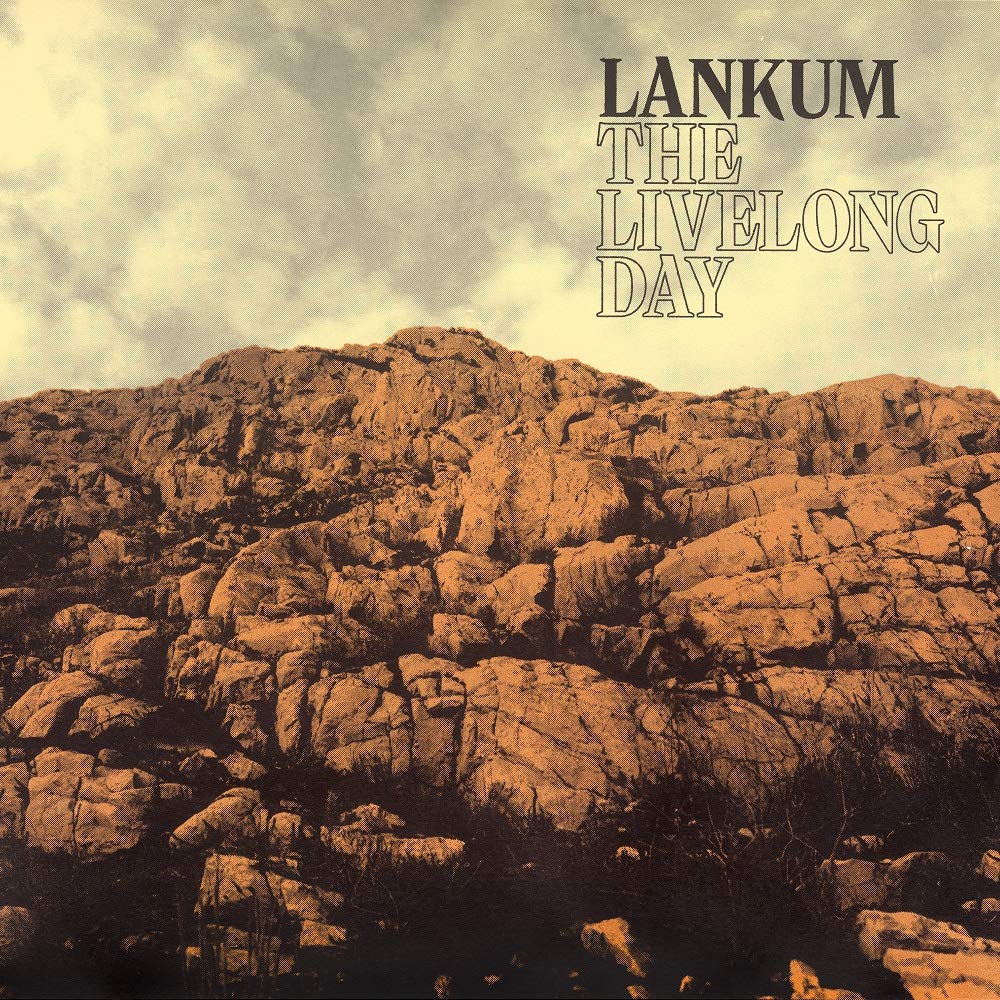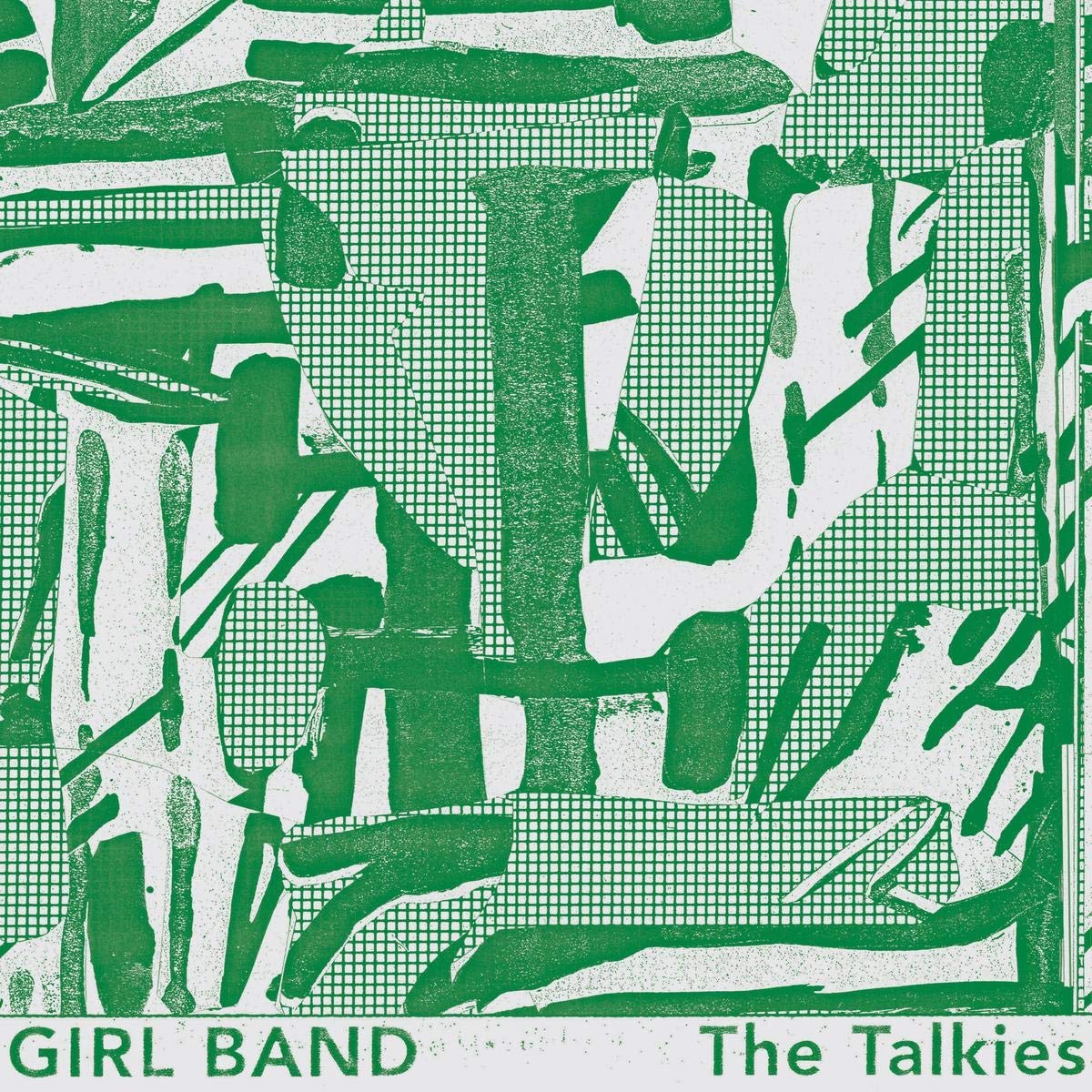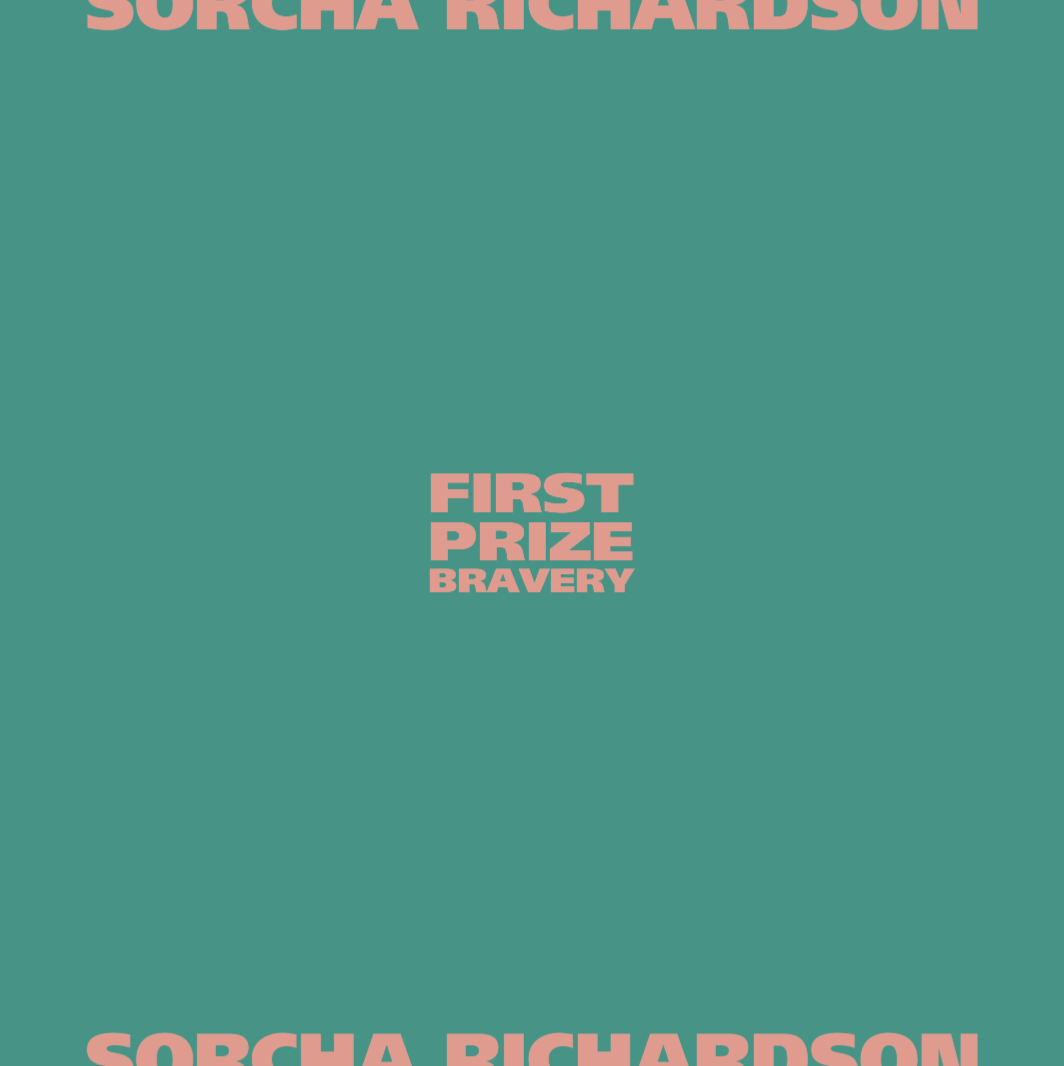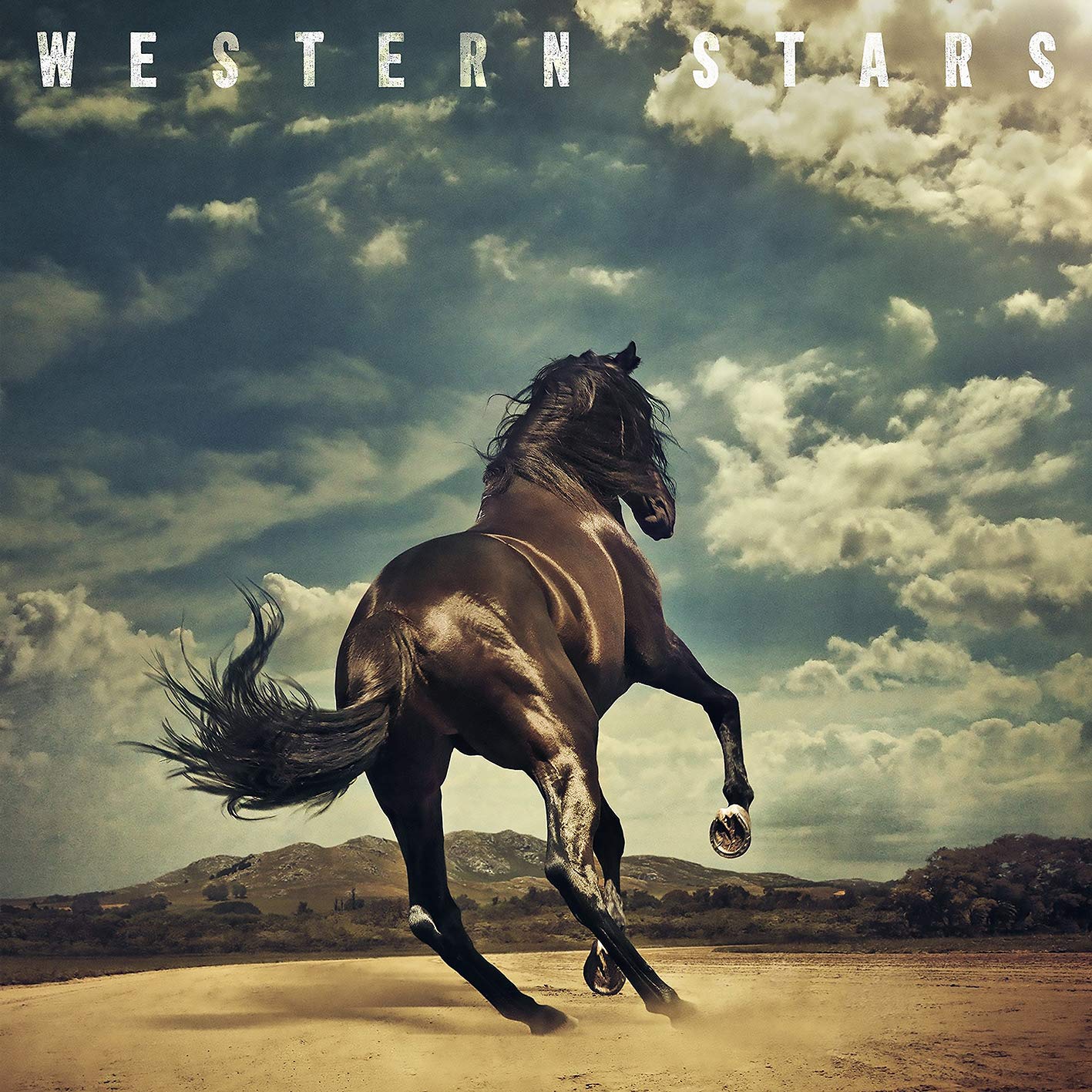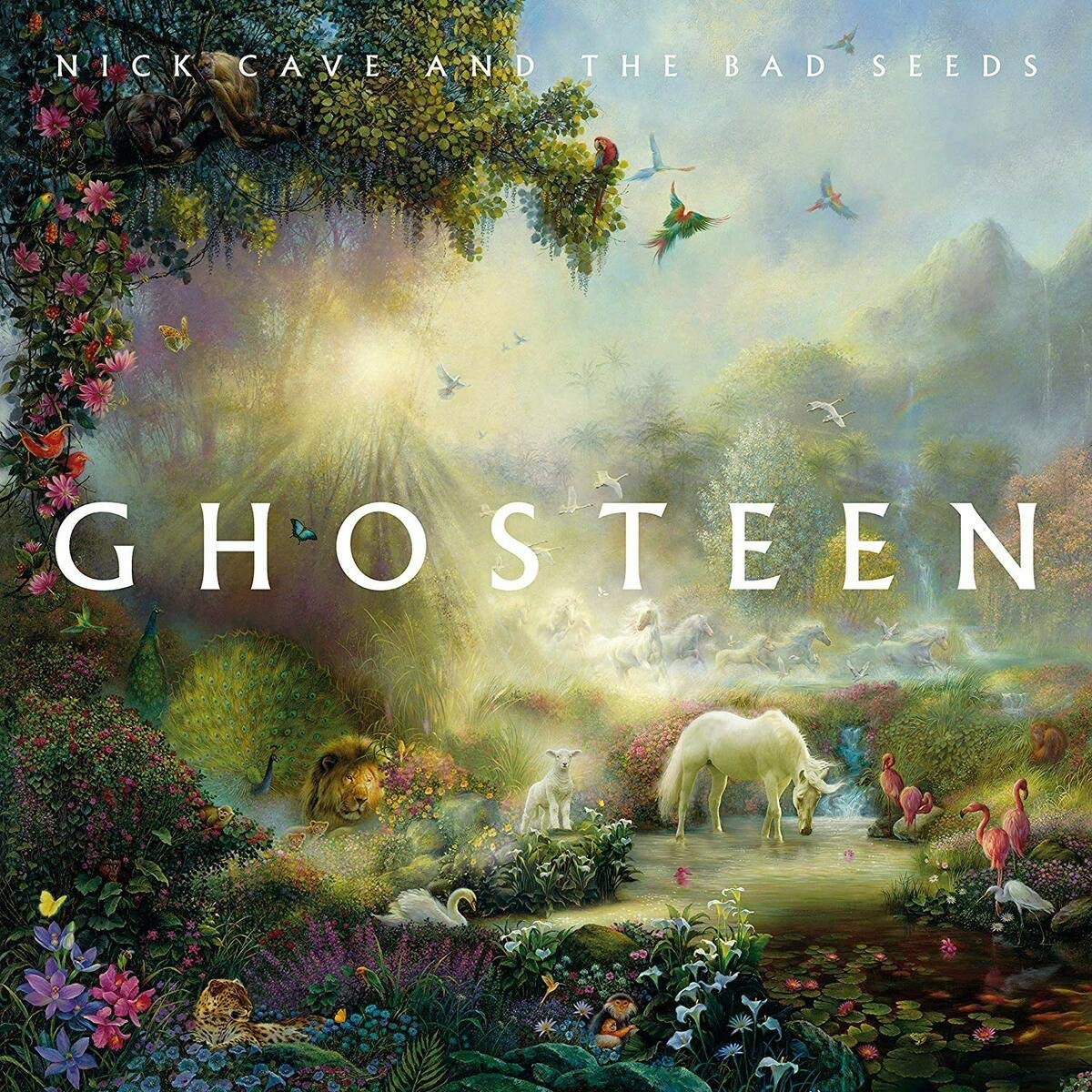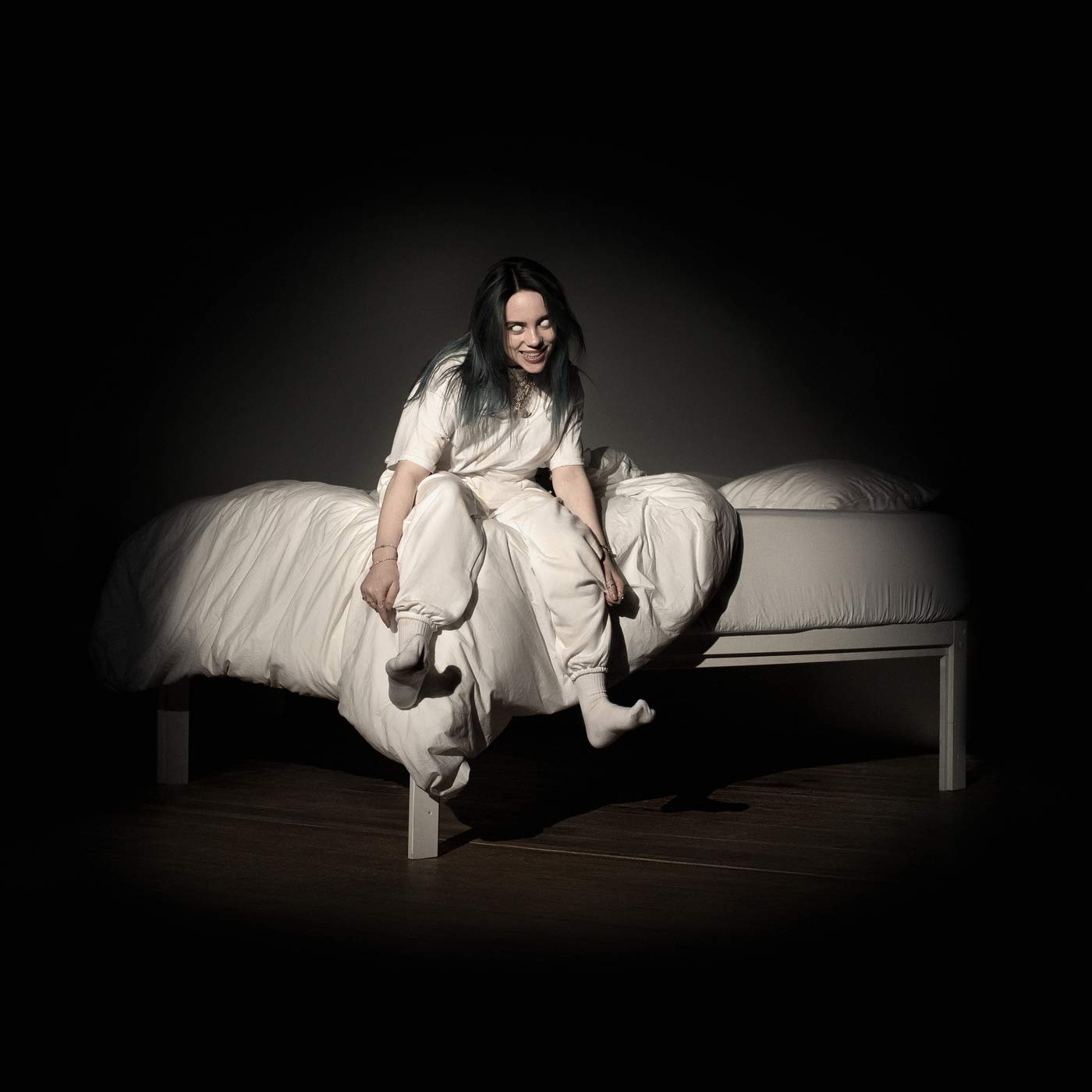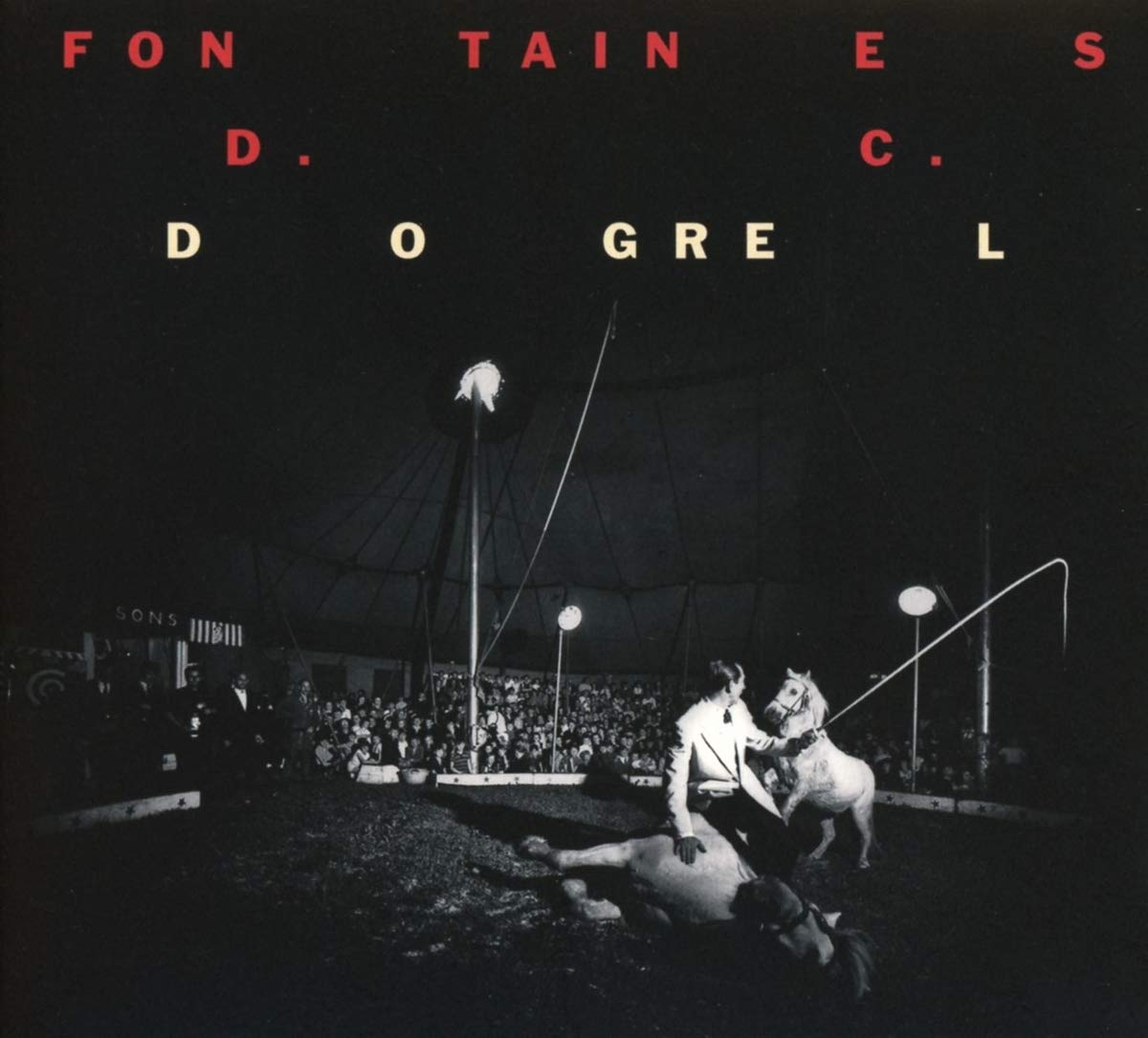- Opinion
- 20 Dec 19

10. Mango X Mathman - Casual Work (Weapon of Choice) by Lucy O'Toole 8/10
Initially earning their stripes as members of Irish hip-hop collective the Animators, Mango X MathMan’s journey to their debut album, Casual Work, has been far from straight forward. Through four long, hard years in its making, the duo have seen relationships and livelihoods tested, while the city they’ve grown up in has been transformed dramatically around them – culminating in a debut of uniquely raw intensity and vigour.
From hard-hitting spoken word opener ‘Bread And Butter’, the pair beckon us on a journey through the streets of Dublin – from its warm, banter-filled pubs to its sprawling estates. It’s in this earthy honesty that Casual Work truly hits the mark – playfully acknowledging hip-hop’s culture of braggadocio, while simultaneously reflecting their everyday reality of gaffs and chippers over the American tropes of posturing ‘studio gangsters’.
Shining in the classic MC/DJ formula, historically championed by the likes of Gang Starr and Eric B. & Rakim, Mango’s unique combination of an aggressive, machine gun flow and tender lyricism is powerfully complemented by MathMan’s genre-splicing production. Star-studded guest appearances, including by Lisa Hannigan and Loah, also help to elevate the album to a higher plane, without overshadowing the lads’ central role in the narrative.
Advertisement
At times swinging between fury and weariness, and at other times looking up to the sky in hope, Casual Work rails against the destruction of Dublin’s pulsing creative heart to stunning effect. Using hip-hop as a vehicle, Mango X MathMan are authentically reflecting the experiences of the young and the working class – voices that have long been muted in our city’s tradition of literature and poetry.
With Casual Work, Mango X MathMan have cemented their legacy as one of Ireland’s most important hip-hop acts of the 21st century. A momentous release, documenting Dublin warts and all, Casual Work is a triumph.
9. The Murder Capital - When I Have Fears (HUMAN SEASON RECORDS) by Stephen Porzio 9/10
It was always going to be hard for The Murder Capital to live up to their early promise, with the band finding themselves on a whole host of ‘ones to watch’ lists before even releasing a single. For a time, all music journalists were working off was a thrilling live session recording of their breakout tune ‘More Is Less’, and their concerts.
As such, it’s a pleasure to say that with their debut album, the group have actually surpassed expectations. Opener ‘For Everything’ is a statement of intent for the record. It begins with a minute of gloomy, measured reverb before exploding into a cacophony of sound. When I Have Fears operates in two modes: slow and atmospheric to hypnotise listeners, fast and pounding to make them thrash.
A minor issue with the album is that fans are already familiar with three of its most classically punk tracks – the singles ‘Don’t Cling to Life’ and ‘Feeling Fades’, along with ‘More Or Less’. That said, they sound even more relentless when coupled with the slower, sadder songs on the record, the juxtaposition part of the overall theme of When I Have Fears.
Advertisement
Speaking to Hot Press, Murder Capital frontman and lyricist James McGovern said that throughout writing and recording the LP, members of the band were dealing with grief. A sense of loss haunts the album – its songs fluctuating between anger and sorrow. The sparse, but constantly-building-in-intensity ‘Green And Blue’ conjures images of a funeral with lyrics like “With their wings flung the choir sung their final song today/ As the doors appear to clear the space in which she lay.”
The more tender yet similarly powerful ‘On Twisted Ground’ takes this motif further. In his gravelly baritone, McGovern sings his side of a conversation with a deceased loved one: “Oh my dearest friend, how it came to this/ With your searing end into the abyss.” It should be noted this is only my interpretation: a strength of The Murder Capital is their enigmatic poetic lyrics (the record’s title is derived from Keats). They feel somehow deeply personal to the band, while mysterious enough that listeners can project their own experiences onto them.
The subject matter could seem morbid. Yet, there’s enough slivers of light and beauty amongst the darkness. The cello coda at the end of Mogwai-like instrumental ‘Slowdance II’ is gorgeous, sounding like a classical composition. Meanwhile ‘How The Streets Adore Me Now’ is a stunning piano-driven ballad, which sees a broken McGovern (as evident from his low register on the song) reach an angelic epiphany, learning to live with loss.
On ‘More is Less’, McGovern shouts: “If I gave you what you wanted/ You’d never be full.” He’s got a point. One album in, I can’t wait to see what this band does next.
8. Thom Yorke - Anima (XL Recordings) by Ed Power 9/10
The world is burning. Technology is turning us into alienated dead-bots. Radiohead will never again give us a proto-Coldplay anthem in the tradition of ‘High And Dry’.
Advertisement
Not much to be cheerful about then. That’s at least according to Thom Yorke, as he releases his third solo album. Anima is in part inspired by the waking nightmares he suffered battling jet-lag and insomnia as Radiohead toured Japan. So throwaway chuckles are at a minimum as the singer applies his hope-deficient croon to beats hashed out long distance with Radiohead producer Nigel Godrich.
Still, the sheer intensity, and the degree to which Yorke commits to tracks such as Moderat-esque opener ‘Traffic’ and the lulling ‘Dawn Chorus’ bring their own rewards. Deeper in, Anima threatens to trash-compact under the sheer weight of ennui. Yet the grooves glisten and Yorke always swings in with a tune.
The singer has been a vocal advocate for the Extinction Rebellion movement and a sense of rising dread for the future of humankind infuses the record. There is no light at the end of this tunnel.
Nonetheless, Yorke’s plunge into existential tumult is strip-lit with consistently thrilling avant-pop. We may be on the road to ruin. Anima’s message is that the ride, at least, is worth our time.
7. Lankum - The Livelong Day (Rough Trade Records) by Lucy O'Toole 10/10
Few contemporary artists epitomise the integrity and authenticity at the heart of great folk music quite like Lankum. True to the title of their previous LP, the Dublin four-piece’s sound exists somewhere Between The Earth And The Sky – embracing both earthy, human grit and intangible, otherworldly textures.
Advertisement
With their new record, The Livelong Day, the group have re-emerged with a deepened sense of maturity and mortality, culminating in a project of uniquely raw intensity – and undoubtedly one of the finest releases of the year.
Lankum’s trademark organic ambience is brought to thrilling, sometimes terrifying, new heights, courtesy of their honorary fifth member, engineer and producer John “Spud” Murphy. Experimental instrumentation and playing include stunning appearances from the harmonium, mellotron, trombone and, most notably on ‘Hunting The Wren’, whatever else happened to be lying around the studio at the time.
Capturing the wily anarchy that’s always been an integral aspect of Irish folk music, the group handle inherited songs like ‘The Wild Rover’ and ‘The Dark Eyed Gypsy’ with immense respect – but they are never precious. As with their previous releases, ancient sounds and haunting drones are used as a vehicle to express modern issues and to explore the human condition – with ‘The Young People’, a rousing ballad about suicide, packing a slow-building, but ultimately devastating, blow.
Yet, despite fearlessly confronting these darker moments of our past and present, there’s also a deep, resounding love encased within the music throughout the album – with Radie Peat’s tenderly earthy vocals embodying the Irish landscape and people to stunning effect.
A remarkable and urgent reminder to celebrate the livelong days. Long live Lankum.
6. Girl Band – The Talkies (Rough Trade Records) by Lucy O'Toole 8/10
Advertisement
Since revolutionising the Irish music scene with their raucous debut, Holding Hands With Jamie, back in 2015, Girl Band have boldly challenged us to rethink everything we know about the laws of sounds and the limitations of rock.
However, after lighting up a vibrant path for loud, innovative and unapologetically Irish guitar bands, Girl Band quietly stepped out of the spotlight two years ago, after a slate of cancelled tour dates triggered by mental health issues.
Escaping away to Ballintubbert House in Laois last autumn, they began a deeply experimental recording process, exploring sonic possibilities throughout the stately manor and its concrete basement – culminating in their long-awaited return, in the form of The Talkies.
Even a cursory listen to the dark and dissonant twists and turns of the album reveal that critical acclaim and accolades were never the goal here. Facing inner-demons head-on, The Talkies takes inspiration from Kendrick Lamar’s ‘For Sale?’, by opening with claustrophobia-inducing heavy breathing. Solace is found in Dara Kiely’s primal scream-influenced vocal style – a healthy release in a world of caged emotions and social stigma. Indeed, despite the intensity of their sound, which at times can feel like sheer violence, the lyrics expose a raw vulnerability, and a twisted, earthy humour, as Girl Band revel in the absurdity of the everyday – referencing everyone from Roald Dahl illustrator Quentin Blake to Sesame Street characters, and packing a surprisingly poignant punch all the while.
No track on The Talkies exemplifies the extremes of Girl Band's experimental approach quite like 'Aibohphobia' – a track that channels the dream sequence in Twin Peaks by featuring reversed recordings of lyrics sung backwards. If that's not hard enough to get your head around, Dara had the ingenious idea to write the lyrics in palindromes, resulting in some of the most brilliantly bizarre opening lines in modern music: "Acrobat stab orca/ Do geese see God?/ Party booby trap."
Expanding their sound into previously inconceivable territories on the likes of 'Akineton', 'Prefab Castle' and 'Aibohphobia', Girl Band have crafted a project that defies any attempts at easy categorisation – but cements their legacy as one of the most innovative bands of their generation.
Advertisement
5. Sorcha Richardson - First Prize Bravery (Faction Records) by Peter McGoran 9/10
Sorcha Richardson’s debut had been in the offing for quite time. Boasting a multi-million-streaming presence on Spotify, the singer has been releasing indie-pop earworms for several years. An LP, though, always remained around the corner. Well, the waiting is over. Recorded over a month in LA with long-term producer Alex Casnoff, First Prize Bravery is about as coherent a debut album as you can get.
Telling the story of Sorcha’s life between New York and Dublin over the course of several months, the album is about the minutiae – and the social politics – of relationships and friendships, and what it means to negotiate these whilst being constantly on the move.
As with any good situational drama, the joy is in the small details. On opener ‘Honey’ – a stripped-back, heart-on-sleeve number – she sings about an encounter with a mysterious “you” that left her questioning everything. But it’s the imagery that wins you over: “I watched you move around the room/ You’re more magnetic than the moon/ That hangs above the balcony/ As you make your way back to me.”
This trend of careful, meaningful description is sustained throughout, even as Sorcha incorporates different musical styles. With consummate skill, she moves from the punchy riffs of ‘Don’t Talk About It’, to the bubbling synths and piano melodies of ‘Oh Oscillator’, and the back-to-basics guitar chords of ‘High In The Garden’.
The joy is that it all works. Every song, in fact, boasts stellar production. So catchy is the title track, it’s easy to overlook just how exquisitely constructed it is. As the song commences, Richardson’s echoing vocals gradually emerge into the foreground. Thereafter, the tune folds layers of acoustic guitars, piano melodies and dreamy synths into a readymade pop hit. Exemplifying the overall attention to detail, the line “I heard the crunch of your heels on the stones in the driveway” is duly followed by skittering percussion.
Everything, of course, is a foil to Richardson’s voice, which can only be described as laidback liquid gold. It draws you into these personal situations, and lays them out like an open diary, judgement-free.
Advertisement
Bravery indeed. This is a superb record.
4. Bruce Springsteen - Western Stars (Columbia) by Pat Carty 10/10
The mythology of the road looms large in the American consciousness. What was the Mississippi that Huck and Tom rafted down but a road offering deliverance from the stagnancy of everyday life? John Steinbeck, a well that Springsteen has supped from more than once, saw Highway 66 as “the great western road, the mother road, the road of flight” And where did Bobby Troup advise you to “get your kicks”, to “take that California trip”? As Amos Milburn promised, “you can lose your lead, Down The Road Apiece”. As an artist, Bruce Springsteen’s raison d’être has always been the road, not just his place out on it as perhaps the greatest live performer rock n’ roll has ever produced, but as a man out to escape the shackles of the ordinary that chain the rest of us to our Sisyphean rock.
We are all born to run, but nobody gets to be wild and innocent forever. The darkness waits for us all. The tragedy is that you’re always gonna run out of road. Perhaps that is the tragedy of America itself, the frontier could not stretch out forever. “Go west, young man, go west and grow up with the country!” proclaimed Horace Greely, but what happens when you get there, and the growing up is done?
While Springsteen insists these are character songs, they are the same characters he introduced us to forty something years ago, they just came to the end of the line. The opening ‘Hitch Hikin’ finds a man still out there though, smiling freedom over an optimistic acoustic guitar and banjo and the first of the album’s glorious brass and string swells, “I’m just travelin’ up the road, maps don’t do much for me, friend” but ‘The Wayfarer’ muses on the “same old cliché, a wanderer on his way, slippin’ from town to town.” He can’t count sheep when he sleeps for the “white lines in his head” cursed with an incurable dose of Merle Haggard’s “White Line Fever”.
The road charges a toll, love is lost, lives are damaged, the “stones in my mouth are only the lies you told me”, his miracle is walking away, a man hollers his love’s name into a canyon, to be answered only by echoes. But there’s hope too; the man who went running, looking for peace, now waits for his baby to arrive on ‘The Tucson Train’, the stuntman who tells you “don’t worry about tomorrow, don’t worry about the scars, just drive fast”, the joyous celebration of being alive at ‘Sleep Joe’s Café’. “I always liked that open road, but miles to go is miles away, hello sunshine, won’t you stay.”
Advertisement
The musical touchstones of the record are the promised ones, the immortal work Glen Campbell and Jimmy Webb did together. There are tremolo guitars and soaring brass - not the jumping sax that arrived when the big man joined the band, but mature, cinematic lines. ‘Chasin' Wild Horses’, which casts the titular animals as a metaphor for lost temper, borrows slightly from Magic’s ‘Your Own Worst Enemy’, for what is a volatile temper if not your deadliest foe? It employs timpani to announce strings that will move anyone who has ever known pain, sweeping you away in the reverie of a keening pedal steel coda, surely the sound that the lonesome highway makes.
Things come full circle – the acoustic guitar of the closing ‘Moonlight Motel’ echoes ‘Hitch Hikin’ but the life of “kids and bills and the ringing of the bell” has caught up with the happy wanderer, the old place of memory is “boarded up and gone” but he drinks to it anyway, one last time.
File this heartbreaking yet life-affirmingly beautiful record - both elegiac and warm, a trick few others, if any, could pull off - beside Tunnel Of Love and The Ghost Of Tom Joad. It claims its place on the shelf as the essential next chapter in the real Springsteen autobiography.
3. Nick Cave & The Bad Seeds – Ghosteen (Ghosteen Ltd) by Pat Carty 9/10
It was a cold soul that didn’t feel for Nick Cave and his family on the tragic loss of their son in 2015, the worst nightmare of any parent, any human. Accordingly, Skeleton Tree was, at times, a harrowing listen, although Cave claimed the songs predated his loss, like Dylan has always maintained the mortality-baiting material on Time Out Of Mind came before his brush with the reaper. Ghosteen continues in a similar vein - for how could it not? – with Cave documenting his anguish through work of rare beauty, transmogrifying unspeakable pain into high art.
The music is, as one might expect, sombre. Washes of analogue keyboards, punctuated by acoustic piano and semi-choral backing vocals. The words ‘ambient’ and even ‘prog’ spring to mind. The long opening section of the title track might remind you of the Bowie and Eno of ‘Warszawa.’ Nothing even approaching percussion appears until the half-way mark of ‘Leviathan’, and, even then, it’s only a skeletal rumble.
Advertisement
It is Cave’s lyrics and his voice - ranging from spoken word, through sonorous tenor, to plaintive falsetto - which must carry the most weight. Irish ears cannot help but wonder if the album’s title is a reference to a small ghost, the taibhse beag that haunts this record. The title track concedes that the centre cannot hold and “things tend to fall apart.” “He kisses you lightly and he leaves... baby bear, he has gone, to the moon in a boat” – words that would shatter the hardest of hearts. ‘Ghosteen Speaks’ might well be Cave imagining a spirit at its own funeral - “I think they’ve gathered here for me... I am beside you, look for me.” Take pity on the artist forced to relate these feelings.
‘Bright Horses’ - one of the most beautiful things Cave has ever recorded – knows that “the little white shape dancing at the end of the hall is just a wish that time can’t dissolve.” Jesus, in his mother’s arms, resurfaces repeatedly, as an image of innocence lost to “a man mad with grief.” A man who accepts in ‘Fireflies’, with an air of resignation, that “there is no order here… nothing can be planned.” T.S. Eliot wrote that “those who have crossed… to death’s other kingdom remember us – if at all - as the hollow men.” Pain has emptied Cave, worn him down: “We crawl into our wounds… there’s little room for wonder now.”
The album is bookended by ‘Spinning Song’ with its promise that “peace will come” and the epic ‘Hollywood’, which has Cave still “just waiting now for peace to come.” Grief never truly heals, it merely subsides with time. This is an artist laying himself bare, this is art as bleak as it is beautiful, and one can only hope it offers some sort of catharsis - some modicum of relief - to its creator.
2. Billie Eilish - When We All Fall Asleep, Where Do We Go? (Interscope) by Ed Power 9/10
Eyebrows twitched and Twitter accounts combusted when David Grohl likened the hysteria around Los Angeles teenager Billie Eilish to the incendiary effect Nirvana had on fans early in their career. Grohl later felt obliged to clarify that he wasn’t comparing Eilish to Kurt Cobain, merely drawing parallels between their passionate followers. But there really was no need to set the record straight. Eilish isn’t a Gen Z Kurt Cobain. She is, however, a different stripe of streaming age pop star: darker, scarier, far stranger than her peers.
It’s a little over a year since Hot Press interviewed Eilish and anointed her a face to watch. Half a dozen or so singles have followed, in addition to videos in which she variously let a spider play on her tongue and wept blue tears.
Advertisement
Yet only a handful of these songs have made it to When We All Fall Asleep… The rest were presumably excluded on account of not chiming with the record’s overarching obsession with the grey spaces between waking and unconsciousness. Eilish has in interviews expressed befuddlement with the basic concept of sleep – you lie down and then the lights go out – and the album metastasises that idea.
So we hear her plunge down a baroque rabbit hole on ‘Bury A Friend’ – in the best sense Michael Jackson’s ‘Thriller’ reimagined as a found-footage horror pop. And there’s a terrifying flight of the imagination on ‘You Should See Me Wear A Crown’ – a strutting symphony that sees the 17 year-old play make-believe with pop star imperiousness.
Given that Eilish has released a run of killer tracks across the past several years, it’s a surprise that her debut contains its share of filler. The back end is especially weak and you wonder if she has gone too far in calibrating for a more mainstream audience. The nadir in that respect is ‘I Love You’, an acoustic simper-fest about as compelling as its hackneyed title (I recommend you quietly skip it and instead slap on the Air Atlantica Remix from her Six Feet Under EP).
Still, When We Fall Asleep… is often remarkable – especially considering it is essentially the work of two people, Eilish and her older brother Finneas O’Connell (which sort of makes them the Carpenters of Gen Z fright-pop). ‘When The Party Over’ is Tori Amos goth-pop for post-Millennials. And ‘All The Good Girls Go To Hell’ is an electro Exocet powered by squidgy keyboards and Eilish’s shrapnel coo. This is shoot-to-chill pop with the safety catch off – a tour de force back lit with a blue streak of ferocity. At its best, it’s astonishing.
1. Fontaines DC - Dogrel (Partisan Records) by John Walshe 9/10
“My childhood was small, but I’m gonna be big,” screams Grian Chattan over a tub-thumping, feral punk workout. As introductions go, they don’t get much stronger than ‘Big’, the opener to Dogrel, the debut album from Dublin quintet Fontaines DC. It may last just one minute and 48 seconds, but it seems like something has monumentally shifted by the time the last note fades, and if you squint, you can almost see the ghosts of Paranoid Visions, The Pogues and Whipping Boy smiling appreciatively amid the murk.
Advertisement
Fontaines DC are quite the buzz band at the minute, having wowed all and sundry with their quintessentially Dublin brand of punk at South By South West, and signed to the same label as the force of nature that is Idles, who they support on a US tour in May. But there is substance behind the clamour, as they boys channel anger and aggression into some of the most visceral guitar music this country has produced in a generation.
The blueprint devised by chief songwriter and guitarist Carlos O’Connell isn’t new: take a bruising 4/4 beat, and add scorching guitar, slabs of bass and shouty vocals. But there’s a raw honesty to Fontaines’ bluster that makes it feel somehow fresh. There’s a genuine left-wing punk aesthetic in the ferocious assault of ‘Too Real’ and the snarled manifesto that is ‘Chequeless Reckless’, where Chattan defines his enemies: “A sell-out is someone who becomes a hypocrite in the name of money/ An idiot is someone who lets their education do all of their thinking/ A phony is someone who demands respect for the principles they affect/ A dilettante is someone who can’t tell the difference between fashion and style.” Dictionary in hand, it’s hard not to be impressed.
Their 2017 debut, ‘Liberty Belle’ sounds as box-fresh as it did the first time we heard it, and it’s almost impossible to listen to without your limbs jerking along spasmodically, while ‘Boys In The Better Land’ could be a lyrical anthem for a new generation: think Lizzy’s ‘The Boys Are Back In Town’ on PMA.
‘Television Screen’ proves that these young pups know their history, sharing its name with the first Irish punk single, The Radiators From Space’s 1977 debut. Then there’s the bruising bass encounter of ‘Hurricane Laughter’, the Ramones-on-Buckfast pogo of ‘Sha Sha Sha’ and the restrained ‘Roy’s Tune’, Chattan actually singing rather than growling his words for a change.
‘The Lotts’ expands the musical blueprint away from the relentless shoutathon, while the closing ‘Dublin City Sky’ could be a lost Pogues anthem, dripping with a sense of melancholy and regret that MacGowan would be proud of.
Turns out that first song was a little self-deprecating: big? They’re gonna be fuckin’ massive.



